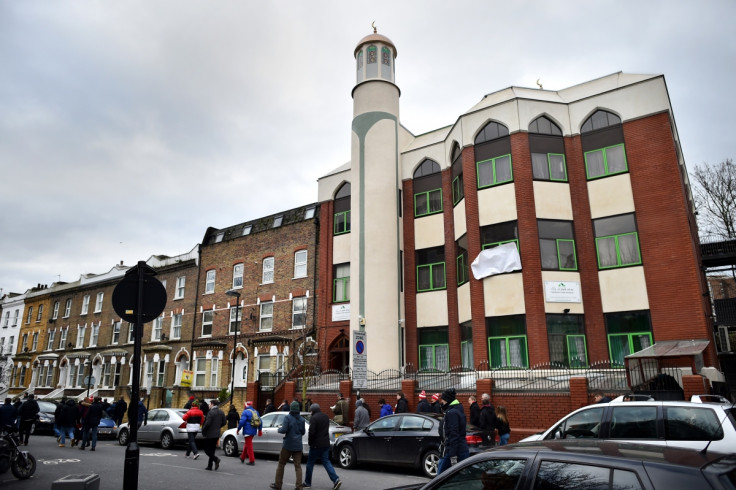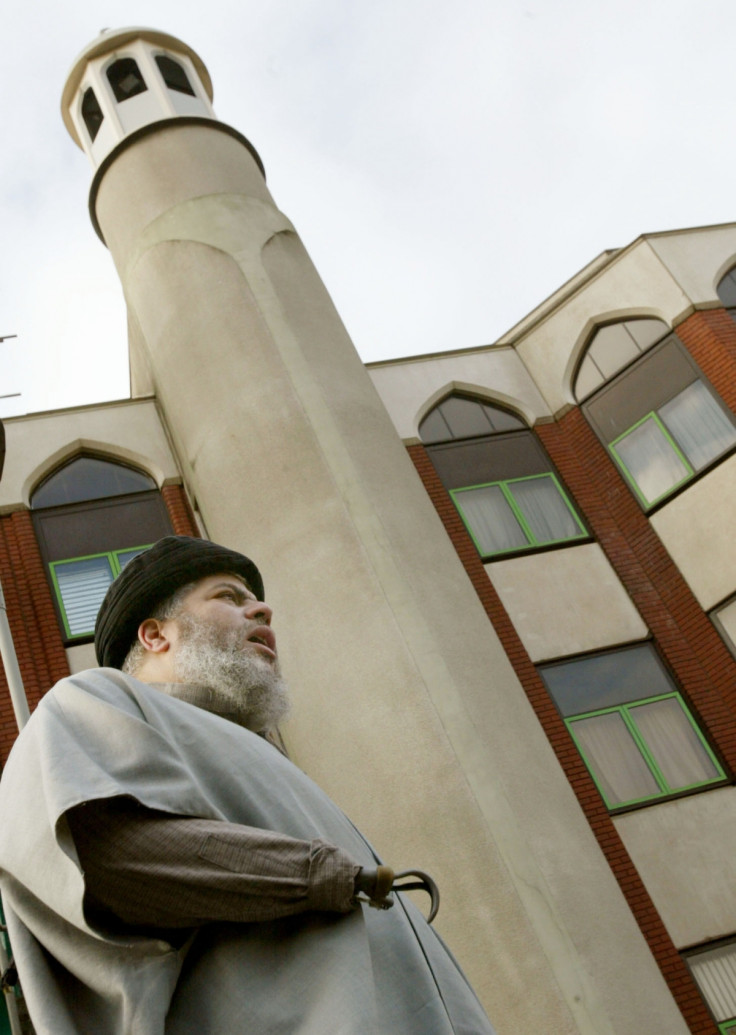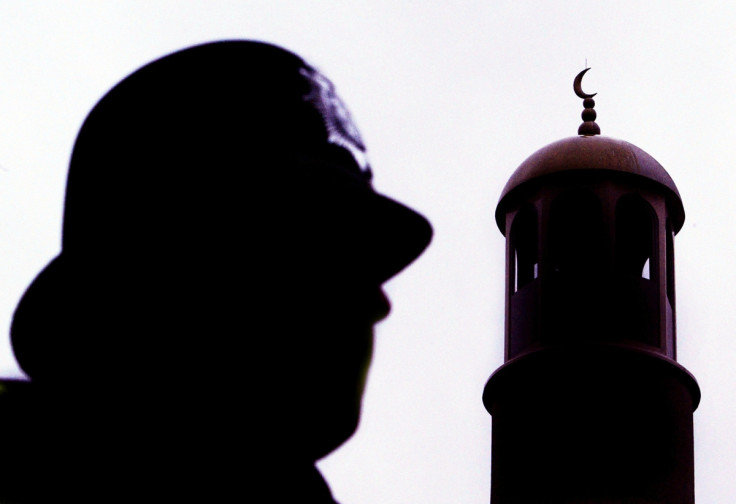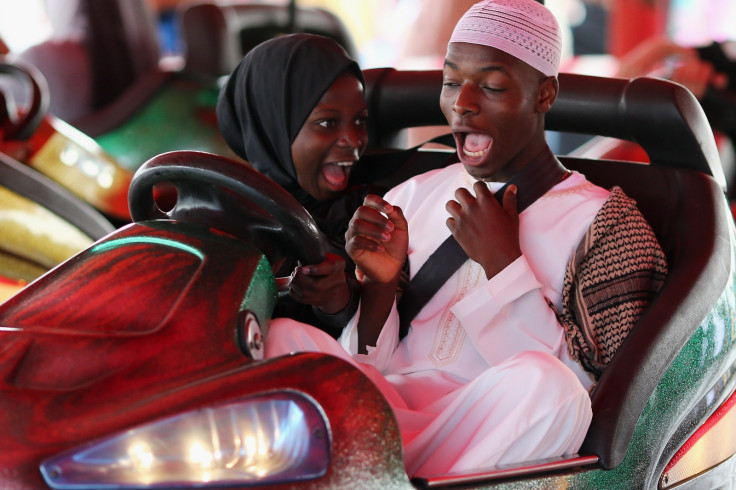Mosque wars: How radical jihadis were driven out of Britain's 'terrorist' Finsbury Park mosque
Muslims who liberated Finsbury Park mosque say Home Secretary Theresa May's new threat to shut down radical mosques will backfire.

On a winter's day in February 2005 two-dozen young men gathered in a Muslim community centre in Finsbury Park, just a few metres from the doors of Britain's most infamous radical mosque. They gathered, apprehensive but excited, for one reason – to take it back.
"I was much bigger back then," recalls Anas al-Tikriti, one of the founders of the Muslim Association of Britain, sat in a Piccadilly café and raising his shoulders as if to demonstrate his former frame: "I was the muscle."

It was brutal. One of the youngsters got punched in the face, another got kicked in the groin. It looked like it would get very ugly.
Half an hour before midday prayers, when the men knew that the mosque would be largely deserted, they chose their moment. They had given strict instructions to the group that there would be no violence and equal instruction to the police – waiting a few blocks away – that if they even showed their faces in the mosque, then it was over. They would walk away.
"We had said to the police… we will take this on one condition: you can never get involved. If any one of you is seen at the mosque when we do what we are going to do, we'll go home. This can't be seen as a police operation, it has to be seen as a community operation," he said.
In a few short years, Finsbury Park had gone from London's most famous mosque – opened by Prince Charles himself in 1994 – to its most infamous, at one point hosting convicted shoe-bomber Richard Reid and Zacarias Moussaoui, who was convicted in 2006 of planning a terrorist attack and being linked to Al Qaeda.
But to most Britons the mosque was synonymous with convicted hate preacher Abu Hamza al-Masri, the hook-handed cleric who was Imam at Finsbury Park in the early 2000s before his suspension, arrest and subsequent conviction for inciting murder and race hate in 2006. Abu Hamza began giving sermons in the street in 2003 when the mosque was raided by police.
When he was arrested, his followers hung around, and by 2005 Finsbury Park was a hub for radical Muslims from across London. Most of the original worshippers had migrated to the Muslim community centre across the road and the police were at a loss as to what to do. Which is when they contacted the Muslim Association of Britain (MAB).
"We made sure that we had numbers. I had 10 to 15 youngsters with me, from 18 to 25. It was very clear what we were doing. We charged in. The caretaker was taken by surprise. We asked him for the keys but he wouldn't give them to us, so we changed the locks," al-Tikriti said.
Within an hour, a couple of the radicals, including Abu Hamza's son, arrived and confronted the men, who had formed a barricade on the stairs that led to the prayer room. Then, al-Tikriti recalled, the radical's own muscle arrived.
"That was brutal. One of the youngsters got punched in the face, another got kicked in the groin. It looked like it would get very ugly. Their leader was barking in our faces and spitting. But we just laid out the terms. We said this mosque is now ours. There's nothing you can do to change that," he said.
If we had the society we want, Anjem Choudary would be a footnote. He’d be a footnote to a footnote.
The men left and never returned, and to this day they have stayed away, al-Tikriti said. Now Finsbury Park Mosque has almost shaken its reputation as a hub for radicals – it hosts multi-faith open days, hosts Arsenal Football Club and has once again become a positive influence in London's Muslim community, with excellent relations between councillors, police and locals.

A lot of that is down to Mohammed Kozbar, who was also one of the men who raided Finsbury Park Mosque in 2005 and is its general secretary to this day. As someone who has played such an active role in turning the mosque around, Kozbar was bemused by Home Secretary Theresa May's claims that new laws could serve to shut down radical mosques in the UK.
The British government appears to have forgotten, he says, that they tried closing Finsbury Park Mosque down in 2003 and in response Abu Hamza began preaching in the street – in many ways it was the closing of the mosque that created Abu Hamza by bringing his violent, radical – and now public – sermons to a far greater audience.
"Abu Hamza gained ground in the community because of it…The people who used to occupy this mosque were dangerous people," he said.
The people who used to occupy this mosque were dangerous people.
Kozbar and al-Tikriti argue that radicalisation is not taking place in London mosques, but on the internet, and by closing mosques, you only reduce further their role in countering extremism.
Al-Tikriti says that he has a tough time persuading his own teenage kids to attend mosque, and when he does go, he finds himself among an older crowd.
"People don't realise that most of the youngsters that go to Syria and Iraq are not mosque goers. I go to the mosque and I see pleasant people of 65 to 70. It is dead," he said.
It is that disconnect that is undoubtedly fuelling Islamist sentiment in the UK, with prominent hate preachers, such as Anjem Choudary, harnessing the internet in an effort in order to instil radical, jihadi sentiment within young Muslims. Choudary does attend mosque, but much of his sermonising takes place in internet chat rooms rather on the pulpit.
The major criticism of the new laws being proposed by the government is that it makes no distinction between mainstream Muslims and fanatics and, by doing so, it actually makes Choudary's case for him. It allows him to persuade young, impressionable Muslims that a countrywide witch-hunt is under way against Muslims in Britain, presenting his warped pro-Islamic State ideas as a battle for civil liberties.
"If we had the society we want, Anjem Choudary would be a footnote. He'd be a footnote to a footnote," said al-Tikriti.

But at the same time, al-Tikriti and Kozbar and others are increasingly angry that their efforts and that of others in the Muslim community in Britain have been received not with support, but with a huge increase in surveillance and threats to crackdown on civil liberties because of the actions of a relative handful of fanatics.
The number of young people that have joined IS from the UK is estimated at over 700 – a fraction of the 2.8 million that call the UK home. Anjem Choudary is one preacher of thousands in Britain and yet al-Tikriti and Kozbar and others feel that they are being punished for his hateful interpretation of their faith. They feel snubbed.
Think of the stature of Britain, how high it is held in the minds of Arabs and Muslims. You have a country like this saying: we will withdraw people’s passports. It is crazy.
"[Senior politicians] are more than willing to say that much of what I am saying has validity, but they say listen: 'Nobody can afford to seem as though they are being soft on terrorism... regardless of whether it is going to work or not,'" he says.
"It is the nature of the beast but the beast nowadays is quite out of control, if not wildly out of control. It is not just opinions any more… Think of the stature of Britain, how high it is held in the minds of Arabs and Muslims. You have a country like this saying: we will withdraw people's passports. It is crazy."
As we make to leave the café, al-Tikriti muses that, in light of all that, would the MAB accept a request to save a radical mosque, such as Finsbury Park, given the rhetoric and the actual legislation coming out of the current government?
"You have to ask yourself, if we were asked to do it again, would we? I'm not sure," he said.
© Copyright IBTimes 2025. All rights reserved.






















